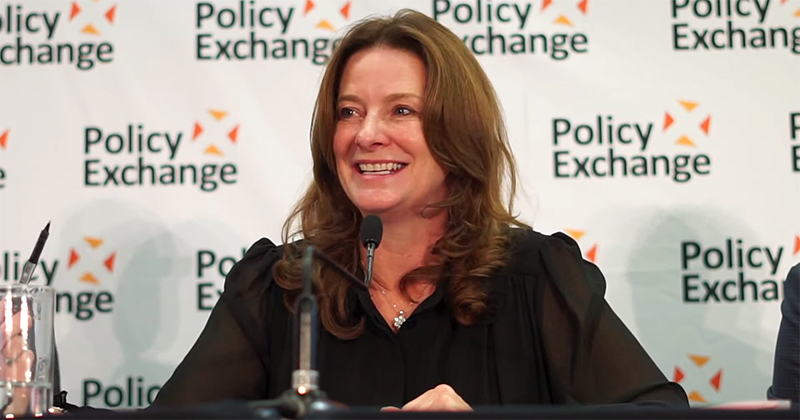The government will launch a long-awaited school teacher degree apprenticeship for non-graduates next year, it has been announced.
The four-year course, which would see apprentices achieve a degree and qualified teacher status, will be piloted with “up to” 150 trainee maths teachers from September 2025.
Apprentices would spend “around 40 per cent” of their time studying and the rest of the time in the classroom, the Department for Education said.
The government missed its secondary teacher recruitment target by 50 per cent this year.
Planning for a route that does not require applicants to already have a degree has gone on behind the scenes for years. Without such a route, schools have limited ways to spend money they pay into the apprenticeship levy.
But earlier attempts to create such a route never came to fruition, in part due to opposition from former schools minister Nick Gibb, who left government in November.
Education secretary Gillian Keegan said the teacher degree apprenticeship (TDA) would be a “game-changing opportunity for schools to nurture and retain talent from the ground up, helping apprentices to gain the knowledge and skills they need to teach future generations.

“The teacher degree apprenticeship will open up the profession to more people, from those who want a career change to those who are looking for an earn and learn route without student debt.”
A 12-month postgraduate apprenticeship route has existed for several years but requires applicants to already hold a degree.
Government data shows 630 people achieved the qualification in 2021-22. ITT census figures show 962 applied for the course this academic year.
Route for non-graduates
The DfE said its teacher degree apprenticeship would offer a “high-quality, alternative route for people to become qualified teachers”, and would “diversity the route into teaching so schools across the country can continue to recruit the teachers they need”.
The department added the new route would “provide a new route for teaching assistants who do not have an existing degree to train to become a teacher and continue their career progression in the classroom”.
The government will double the current minimum off-the-job training requirements from 20 per cent to “around 40 per cent” for teacher degree apprentices.
The DfE said apprentices would spend “around 40 per cent of their time studying for their degree with an accredited teacher training provider, gain qualified teacher status and all tuition fees are paid for, so trainees won’t be saddled with the student debt”.
It is also not clear whether the government will expect the qualification to be offered only by universities, or whether other teacher training providers will be given degree-awarding powers.
The department said it was “working with subject experts and the trailblazer group to co-develop how universities and schools offering the TDA can ensure secondary subject specialism is comprehensive and high-quality”.
The courses also “must adhere to the ITT criteria, encompass all aspects of the ITT core content framework (CCF) and enable trainees to meet the teacher standards”.
‘Unlikely’ to solve teacher shortages
Ministers will launch recruitment to the pilot scheme in the autumn. It will see the government “working with a small number of schools and teacher training providers to fund up to 150 apprentices to work in secondary schools to teach maths”.
Training providers “will bid to partake in the pilot and trainees will be recruited from this autumn and start their training the following year”.
The teacher degree apprenticeship grant funding pilot will only include government funding for the training of one cohort.
After that, schools will have to use levy funding. The DfE said providers and schools would also be able to “develop and run” apprenticeship courses with their own funding from September 2025.
The apprenticeship has been developed by a “trailblazer group” – panels of employers that draw up the standards that underpin courses.
The group is chaired by the South Farnham Educational Trust, whose chief executive Sir Andrew Carter led the government’s review of teacher training in 2015.
Geoff Barton, general secretary of the ASCL leaders’ union, said while the apprenticeship was a “good idea in principle”, it was “unlikely that teacher degree apprenticeships will provide anywhere near the number of qualified teachers required to solve the recruitment and retention crisis”.
He added that he was “concerned about how realistic this will be in reality for many schools given the number of competing demands on them and the lack of sufficient staffing and funding in the education system”.

















I think this is a good move and wish it well. It will be interesting to see the level of funding for this qualification compared to an undergraduate degree and how attractive it might be as a 4 year span linked to Lifetime Learning and Loans for when employers run out of funds from the Apprenticeship Levy.
The Government seems to be moving heavily towards Degree Apprenticeships for public sector workers including nurses and other health professionals, police, social services and including support services to the sector such as accountants, digital marketers.
Although some Universities are heavily involved with delivering Degree Apprenticeships many are not because they believe they do not provide enough profit and they do not want to manage a parallel administration and governance / quality regime.
It is encouraging to see private sector providers growing their share of the market and I look forward to the day when they deliver Apprenticeship degrees for University lecturers / tutors. This could be the new badge for parity of esteem in the HE sector.